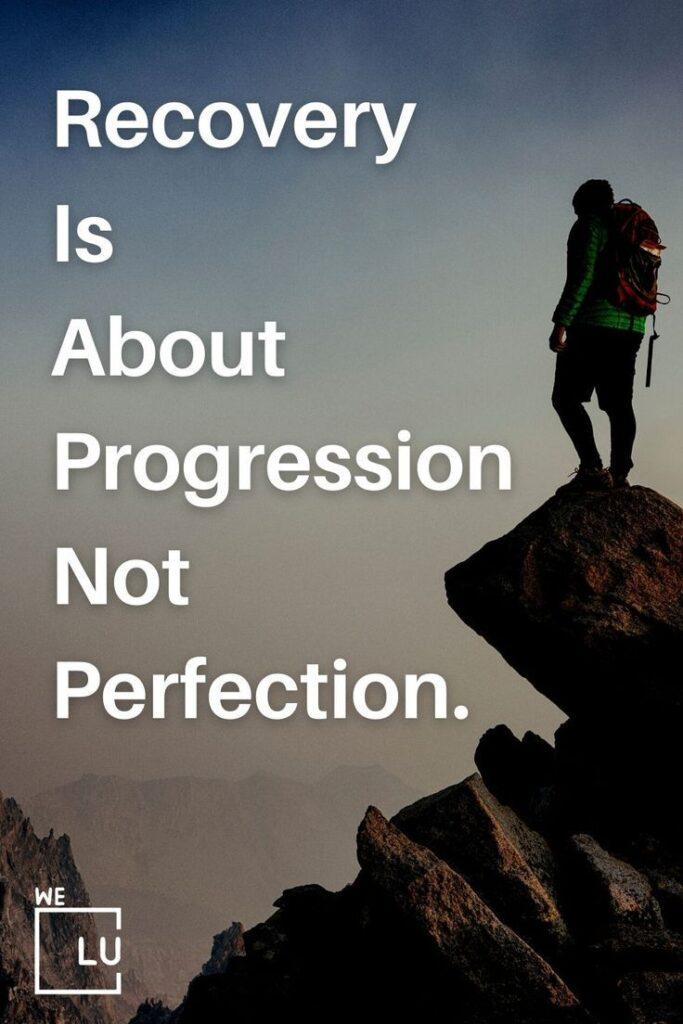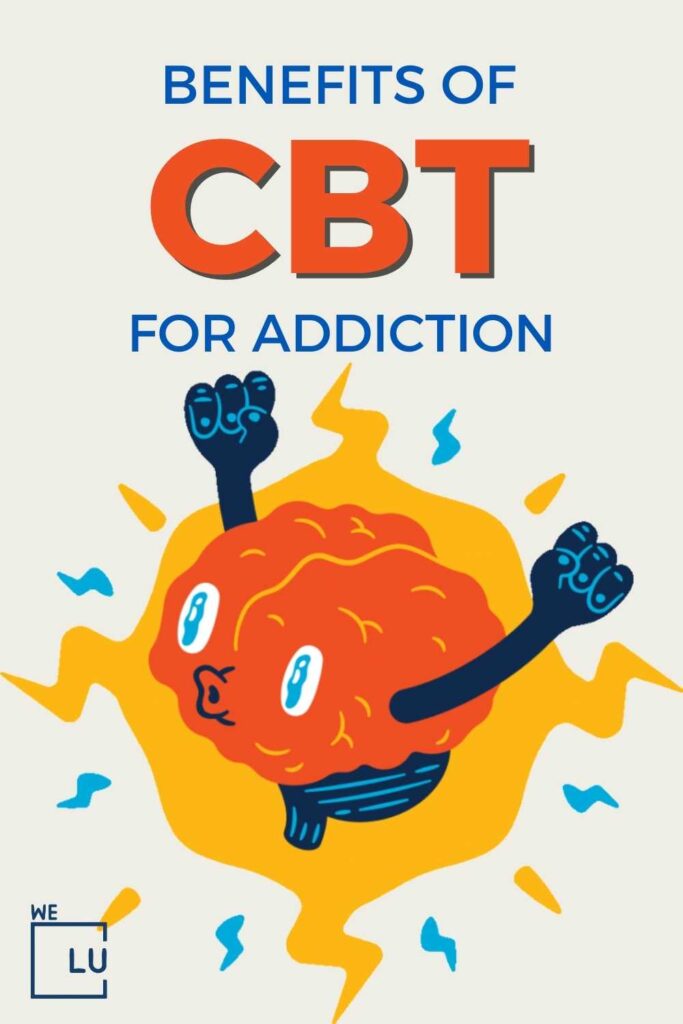Is Marijuana Addictive?
Marijuana addiction, often called cannabis use disorder, has been a considerable debate and research topic. Whether marijuana is addictive has sparked discussions among experts and users alike. While marijuana is commonly perceived as less addictive than drugs like cocaine or opioids, evidence suggests it can still lead to addiction in some individuals.
The addictive potential of marijuana lies in primary psychoactive compound, delta-9-tetrahydrocannabinol (THC). THC interacts with the brain’s reward system, triggering the release of dopamine and creating pleasurable sensations. With repeated use, the brain may tolerate THC, leading users to consume higher doses to achieve the desired effects. This cycle can pave the way for dependence and addiction.
Marijuana addiction manifests through a range of symptoms, including increased tolerance, cravings, difficulty controlling use, neglecting responsibilities, and experiencing withdrawal symptoms when attempting to quit. Withdrawal symptoms can include irritability, anxiety, insomnia, decreased appetite, and mood disturbances.
Not everyone who uses marijuana will develop an addiction. Genetics, underlying mental health conditions, frequency of use, and environmental influences can contribute to an individual’s susceptibility to marijuana addiction.
Recognizing marijuana addiction is crucial for seeking appropriate treatment and support. Behavioral therapies, counseling, support groups, and inpatient or outpatient rehabilitation programs are among the treatment options available for those seeking to overcome marijuana addiction. These approaches address addiction’s psychological and behavioral aspects while providing tools and strategies for relapse prevention.
Marijuana addiction, like any addiction, requires individualized treatment and a holistic approach. Seeking professional help and building a support network can greatly increase the chances of successful recovery.
In conclusion, while marijuana may be perceived as less addictive than other substances, it can still lead to dependence and addiction in susceptible individuals. Understanding the addictive nature of marijuana is crucial for addressing the associated effects and withdrawal challenges and seeking appropriate treatment options. By recognizing the signs of marijuana addiction and providing support, individuals can journey toward recovery and reclaim control over their lives.
Effects & Signs Of Marijuana Addiction
Marijuana addiction, also known as cannabis use disorder, can affect an individual’s physical, mental, and social well-being. Recognizing the signs of marijuana addiction is crucial for identifying and addressing the issue. Here are some common effects and signs associated with marijuana addiction:
- Cognitive Impairment: Prolonged marijuana use can impair cognitive function, affecting memory, attention span, and decision-making abilities. This can hinder academic or professional performance.
- Neglected Responsibilities: People addicted to marijuana often prioritize their drug use over responsibilities and obligations, such as work, school, or family commitments.
- Increased Tolerance: Developing tolerance to marijuana is a common sign of addiction. This means larger doses are needed to achieve the desired effects once obtained with smaller amounts.
- Failed Attempts to Quit: Individuals struggling with marijuana addiction may repeatedly try to quit or cut down on their use but find it difficult. Unsuccessful attempts to stop or control marijuana use are indicative of addiction.
- Cravings and Dependence: Strong cravings for marijuana are a significant sign of addiction. Dependence on the drug can develop, leading to an increased focus on obtaining and using it.
- Withdrawal Symptoms: When attempting to quit or reduce marijuana use, individuals may experience withdrawal symptoms, including irritability, anxiety, insomnia, decreased appetite, restlessness, and mood swings.
- Social and Interpersonal Issues: Marijuana addiction can strain relationships, as individuals may prioritize drug use over spending time with loved ones. They may also withdraw from social activities that don’t involve marijuana.
- Financial Problems: Addiction can lead to financial strain, as individuals may spend significant amounts on purchasing marijuana, often neglecting other essential expenses.
- Legal Consequences: Engaging in illegal activities, such as buying or selling marijuana, can lead to legal problems, including arrests, fines, or imprisonment.
- Neglecting Hobbies and Interests: Individuals addicted to marijuana often lose interest in previously enjoyed activities and hobbies, preferring to use the drug instead.

Skip To:
Learn More:
- Psychosis Weed, Can Marijuana Trigger Psychosis? Weed Psychosis Signs & Symptoms
- How Long Does Marijuana Stay In Urine?
- How Long Does Marijuana Stay In Blood?
- Marijuana Withdrawal Symptoms, Weed Withdrawal Symptoms, Timeline, Dangers & Withdrawal Treatment
- Depression and Marijuana. Is Marijuana A Depressant? Does Marijuana Help Depression?
- Marijuana Addiction Withdrawal, Side Effects, & Treatment
- K2 Synthetic Marijuana Abuse, Addiction, & Symptoms
These effects and signs do not necessarily indicate addiction in every case. However, if several of these signs are present and negatively impact one’s life, it may indicate marijuana addiction.
If you or someone you know is struggling with marijuana addiction, seeking professional help and support is essential. Treatment options such as therapy, counseling, support groups, and rehabilitation programs can provide guidance and resources for overcoming addiction and reclaiming a healthier, drug-free life.
Get Help. Get Better. Get Your Life Back.
Searching for Accredited Drug and Alcohol Rehab Centers Near You?
Even if you have failed previously and relapsed, or are in the middle of a difficult crisis, we stand ready to support you. Our trusted behavioral health specialists will not give up on you. When you feel ready or just want someone to speak to about therapy alternatives to change your life call us. Even if we cannot assist you, we will lead you to wherever you can get support. There is no obligation. Call our hotline today.
(844) 597-1011Popular Marijuana Addiction FAQs
-
Can You Get Addicted To Weed?
Yes, it is possible to become addicted to weed. Marijuana addiction, also known as cannabis use disorder, can develop in individuals who use marijuana regularly and excessively. While not everyone who uses marijuana becomes addicted, some individuals may experience withdrawal symptoms and struggle to control their use, indicating the presence of addiction.
-
How Addictive Is Marijuana?
The addictive potential of marijuana varies from person to person. While it is generally considered less addictive than cocaine or opioids, research suggests that marijuana can still lead to addiction in susceptible individuals. The addictive nature of marijuana is primarily attributed to its psychoactive compound, THC, which interacts with the brain’s reward system and can create a cycle of dependence and cravings.
-
Am I Addicted To Weed?
If you are concerned about marijuana use and suspect you may be addicted, there are signs to look out for. These signs include increased tolerance, unsuccessful attempts to quit or cut down on marijuana use, experiencing withdrawal symptoms when attempting to quit, neglecting responsibilities and obligations, prioritizing drug use over other activities, and experiencing cravings for marijuana. If you identify with several of these signs that negatively impact your life, it may indicate marijuana addiction.
-
How Is Weed Addictive?
Weed, or marijuana, is addictive due to THC (delta-9-tetrahydrocannabinol). THC interacts with the brain’s cannabinoid receptors, particularly those involved in the reward and pleasure pathways. This interaction triggers the release of dopamine, creating pleasurable sensations. With repeated use, the brain can adapt to the presence of THC, leading to tolerance and the need for higher doses to achieve the desired effects. This cycle of dependence and craving contributes to the addictive nature of weed.
-
Is Weed Chemically Addictive?
While weed is not considered chemically addictive in the same way as substances like nicotine or opioids, it can still lead to psychological addiction. The psychoactive compound THC in marijuana affects brain chemistry and can create a psychological dependence on the drug. Individuals may develop habits, routines, and cravings associated with marijuana use, making it challenging to quit or cut back despite negative consequences.
-
Is Weed Physically Addictive?
Weed is not considered physically addictive in the same way as substances like alcohol or opioids. Physical dependence typically involves the body adapting to the presence of a substance and experiencing physical withdrawal symptoms upon cessation. However, marijuana use can still lead to psychological dependence and the experience of withdrawal symptoms such as irritability, anxiety, insomnia, and appetite changes when attempting to quit. These symptoms are primarily psychological rather than physical.
Marijuana Addiction Facts
What is Marijuana?
Marijuana, also called weed, is a substance obtained from the cannabis plant for THC-induced effects. Weed is the most widely used illegal substance in the US, according to the National Institute on Drug Addiction (NIDA).
Marijuana Effects
Humans have looked into various methods to enjoy marijuana’s effects. The most popular ways to consume marijuana are as hand-rolled joints or through pipes.
Another alternative method of marijuana consumption is via vaporizers. There are numerous recipes for baking cannabis into brownies and cookies and blending it with butter, tea, and oils.
When THC, the primary psychoactive component of marijuana, travels to the brain and enters the bloodstream, the effects of marijuana become apparent.
Marijuana Addiction & Dependence
Cannabis use can lead to addiction. Marijuana consumption has negative psychological and physical repercussions. Physical symptoms include difficulty breathing, rapid heartbeat, nausea, and vomiting. Regarding their mental health, marijuana users may also be more susceptible to hallucinations, paranoia, disordered thinking, depression, anxiety, and suicidal thoughts.
Furthermore risky for women, marijuana use during pregnancy. Premature birth, low birth weight, and other harmful effects have all been related to marijuana usage by pregnant women.
It is conceivable to overdose on marijuana to the point of suffering significant symptoms, such as anxiety and paranoia, even though a life-threatening overdose has never been documented. Occasionally, people who experience a psychotic reaction from marijuana are in the emergency room. Like intense vertigo, which results in nausea and vomiting, it can prompt patients to seek medical attention.
Weed Addiction Statistics
Marijuana, also called weed, is a substance obtained from the cannabis plant for THC-induced effects. Weed is the most widely used illegal substance in the US, according to the National Institute on Drug Addiction (NIDA).
17.5%
Among those 12 and older, marijuana consumption increased from 11% to 17.5%.
Source: NIDA
55 Million
The number of American adults who currently use marijuana.
Source: NIDA
24%
The percentage of 12th-graders who have used marijuana in the past year.
Source: NIDA

Get Your Life Back
Find Hope & Recovery. Get Safe Comfortable Detox, Addiction Rehab & Dual Diagnosis High-Quality Care.
Hotline(844) 597-1011
Marijuana Addiction & Withdrawal
Marijuana withdrawal is the collection of symptoms that can occur when someone using marijuana heavily or regularly stops or significantly reduces their use.
Although marijuana withdrawal symptoms are generally less severe than opioids or alcohol, they can still be uncomfortable for individuals experiencing them. Here are some common symptoms associated with marijuana withdrawal:
- Irritability: Many people going through marijuana withdrawal may experience increased irritability, leading to mood swings and a shorter temper.
- Anxiety and Restlessness: Feelings of anxiety and restlessness are common during marijuana withdrawal. Individuals may feel on edge or have difficulty relaxing.
- Insomnia: Difficulty falling or staying asleep can occur during withdrawal. This can lead to disrupted sleep patterns and fatigue.
- Decreased Appetite: Marijuana withdrawal can temporarily decrease appetite, reducing the desire to eat.
- Physical Discomfort: Some individuals may experience mild physical symptoms such as headaches, stomachaches, or muscle aches during marijuana withdrawal.
- Cravings: Strong cravings for marijuana are typical symptoms of withdrawal. These cravings can be intense, making it challenging to resist using them again.
Not everyone who stops using marijuana will experience all of these symptoms, and the severity and duration of withdrawal can vary from person to person. Withdrawal symptoms typically peak within the first week after quitting and gradually subside over time.
If you or someone you know is experiencing marijuana withdrawal symptoms and finding it difficult to cope, seeking support from a healthcare professional or a substance abuse counselor can be helpful. They can provide guidance and support and potentially recommend strategies or treatments to manage withdrawal symptoms and support recovery.
First-class Facilities & Amenities
World-class High-Quality Addiction & Mental Health Rehabilitation Treatment
Rehab Centers TourRenowned Addiction Centers. Serene Private Facilities. Inpatient rehab programs vary.
Addiction Helpline(844) 597-1011Proven recovery success experience, backed by a Team w/ History of:
15+
Years of Unified Experience
100s
5-Star Reviews Across Our Centers
10K
Recovery Success Stories Across Our Network
- Low Patient to Therapist Ratio
- Onsite Medical Detox Center
- Comprehensive Dual-Diagnosis Treatment
- Complimentary Family & Alumni Programs
- Coaching, Recovery & Personal Development Events
Marijuana Addiction Treatment
Marijuana addiction treatment involves various approaches aimed at helping individuals overcome their dependence on marijuana and achieve long-term recovery. The following are common treatment options and strategies used in the treatment of marijuana addiction:
- Behavioral Therapies: Different forms of behavioral therapy, such as cognitive-behavioral therapy (CBT), motivational interviewing, and contingency management, can effectively treat marijuana addiction. These therapies help individuals identify and modify unhealthy thought patterns and behaviors associated with marijuana use.
- Individual Counseling: Individual counseling provides a safe and supportive environment for individuals to explore their addiction, address underlying issues, and develop coping mechanisms to overcome cravings and triggers.
- Group Therapy: Group therapy sessions involve individuals with similar experiences coming together to share and support one another’s recovery journeys. These sessions provide a sense of community, encouragement, and the opportunity to learn from others facing similar challenges.
- Support Groups: Participation in support groups, such as Marijuana Anonymous (MA) or Narcotics Anonymous (NA), can benefit individuals seeking peer support, guidance, and accountability during recovery.
- Dual Diagnosis Treatment: For individuals with co-occurring mental health disorders alongside marijuana addiction, an integrated treatment that addresses both conditions simultaneously is essential. This approach ensures comprehensive care and increases the chances of successful recovery.

- Medications: Currently, no FDA-approved medications are specifically for treating marijuana addiction. However, medications may be prescribed to manage specific withdrawal symptoms or address co-occurring mental health conditions if present.
- Holistic Approaches: Complementary and alternative therapies, such as mindfulness meditation, yoga, exercise, and art therapy, can be integrated into treatment programs to support overall well-being and provide additional coping strategies.
- Inpatient or Outpatient Rehabilitation Programs: Depending on the severity of the addiction and individual needs, residential (inpatient) or outpatient rehabilitation programs may be recommended. Inpatient programs offer 24/7 structured care, while outpatient programs allow individuals to attend therapy sessions while living at home.
- Relapse Prevention Strategies: Learning relapse prevention techniques is crucial for long-term recovery. These strategies help individuals identify triggers, develop healthy coping mechanisms, and create a support network to maintain abstinence from marijuana.
Treatment plans should be tailored to the individual’s specific needs and preferences. It’s important to consult with healthcare professionals or addiction specialists to determine the most appropriate treatment approach for marijuana addiction. Recovery from marijuana addiction is possible with the right support, commitment, and willingness to make positive changes in one’s life.
World-class, Accredited, 5-Star Reviewed, Effective Addiction & Mental Health Programs. Complete Behavioral Health Inpatient Rehab, Detox plus Co-occuring Disorders Therapy.
CALL(844) 597-1011End the Addiction Pain. End the Emotional Rollercoaster. Get Your Life Back. Start Drug, Alcohol & Dual Diagnosis Mental Health Treatment Now. Get Free No-obligation Guidance by Substance Abuse Specialists Who Understand Addiction & Mental Health Recovery & Know How to Help.
We Level Up Marijuana Addiction Dual Diagnosis Treatment
We Level Up, a reputable rehab center, offers comprehensive dual diagnosis treatment for individuals struggling with marijuana addiction and co-occurring mental health disorders. Understanding the complex relationship between addiction and mental health, their treatment approach combines evidence-based therapies, expert medical care, and a holistic perspective. At We Level Up, individuals receive personalized treatment plans that address the unique challenges of marijuana addiction and underlying mental health conditions.
Through individual counseling, group therapy, behavioral therapies, and medication management, they strive to provide integrated care that promotes healing and long-term recovery. Additionally, their experienced and compassionate staff ensures a supportive environment where individuals can explore the root causes of their addiction, learn healthy coping strategies, and develop resilience for a balanced and fulfilling life. We Level Up’s commitment to comprehensive care and its expertise in addressing dual diagnosis make them a trusted choice for individuals seeking specialized treatment for marijuana addiction and co-occurring mental health concerns.
Experience Transformative Recovery at We Level Up Treatment Centers.
See our authentic success stories. Get inspired. Get the help you deserve.
Start a New Life
Begin with a free call to an addiction & behavioral health treatment advisor. Learn more about our dual-diagnosis programs. The We Level Up Treatment Center Network delivers recovery programs that vary by each treatment facility. Call to learn more.
- Personalized Care
- Caring Accountable Staff
- World-class Amenities
- Licensed & Accredited
- Renowned w/ 100s 5-Star Reviews
We’ll Call You
Watch The Side Effects of Weed, CBD Edibles Timeline & Half-Life Informative Video
Video Script
Edibles refer to food items infused with cannabis, encompassing a wide range of options such as sweets like gummies or baked goods and unconventional choices like salad dressings or beef jerky.
These infused products provide a nuanced and potent marijuana experience that can persist for several hours. In today’s market, there is a proliferation of edibles and CBD-infused products, resulting in a diverse array of delectable creations that showcase creativity and occasional potency. Unlike smoking or vaping, which offer quicker onset but shorter duration, edibles offer a sustained and powerful effect once ingested.
However, it is essential to understand the duration and intensity of edibles’ effects, which can vary depending on factors such as dosage and individual metabolism. Discover more about the effects of edibles and the variables that influence the duration and strength of the resulting highs.
Search We Level Up Marijuana Addiction Resources
Sources
- “Marijuana and Public Health: Cannabis Use and the Risk of Developing a Psychotic Disorder”: https://www.ncbi.nlm.nih.gov/pmc/articles/PMC6141146/
- “Marijuana and Psychosis: What Does the Science Say?”: https://www.drugabuse.gov/publications/research-reports/marijuana/marijuana-psychosis-what-does-science-say
- “Marijuana and Psychosis”: https://www.ncbi.nlm.nih.gov/pmc/articles/PMC5414724/
- “Marijuana and Mental Health”: https://www.nimh.nih.gov/health/publications/marijuana-and-mental-health/index.shtml
- “Marijuana Use and Risk of Psychosis”: https://www.ncbi.nlm.nih.gov/pmc/articles/PMC5840341/
- “Cannabis Use and Risk of Psychosis in Adolescents and Young Adults”: https://www.ncbi.nlm.nih.gov/pmc/articles/PMC6474165/
- “Cannabis-Induced Psychosis: A Review”: https://www.ncbi.nlm.nih.gov/pmc/articles/PMC7330600/
- National Institute on Drug Abuse (NIDA): https://www.drugabuse.gov/publications/research-reports/marijuana/marijuana-addictive
- Substance Abuse and Mental Health Services Administration (SAMHSA): https://www.samhsa.gov/find-help/national-helpline
- Centers for Disease Control and Prevention (CDC): https://www.cdc.gov/


